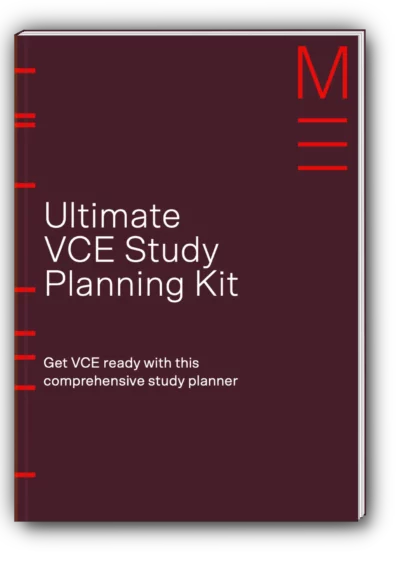Welcome to Matrix Education
To ensure we are showing you the most relevant content, please select your location below.
Select a year to see courses
Learn online or on-campus during the term or school holidays
Learn online or on-campus during the term or school holidays
Learn online or on-campus during the term or school holidays
Learn online or on-campus during the term or school holidays
Learn online or on-campus during the term or school holidays
Learn online or on-campus during the term or school holidays
Learn online or on-campus during the term or school holidays
Get HSC Trial exam ready in just a week
Get HSC exam ready in just a week
Select a year to see available courses
Science guides to help you get ahead
Science guides to help you get ahead
Want to maximise your marks in the VCE Biology exam? Follow our expert tips and study strategies to get fully prepared and ace your exam!

Join 75,893 students who already have a head start.
"*" indicates required fields
Related courses

Join 8000+ students each term who already have a head start on their school academic journey.
The VCE Biology exam is your chance to show how much you’ve learnt and mastered over the year. The final exam accounts for 50% of your overall Biology study score, making it an extremely important part of your VCE. Acing the exam would not only boost your ATAR, but it would also open doors to future opportunities in fields like medicine, environmental science, or biotechnology.
This in-depth article will give you all the strategies and study tips you need to excel in your final VCE Biology exam.
Get VCE ready with this comprehensive study planner. Fill out your details below to get this resource emailed to you. "*" indicates required fields
Free VCE Study Planning Kit Download

Free VCE Study Planning Kit Download
Before you even start thinking about studying for the VCE Biology exam, it’s essential to understand how the exam is structured. The final exam will have two sections:
Keep in mind that many questions will involve interpreting visual or written material, such as scenarios, experiments, and data. So, to prepare effectively, focus your study on applying your knowledge to real-world Biology examples.
Multiple-choice questions: Test your knowledge of basic concepts.
Short answer questions: Require concise explanations of biological processes.
Extended response questions: Demand more in-depth answers and often include analysing data or diagrams.
Make sure you’re familiar with how each section is weighted and the types of questions that frequently appear.
Knowing what to expect in terms of content will help focus your study efforts. Understanding each concept in-depth will allow you to explain them with clarity and apply them to real-world scenarios. The VCE Biology study design covers several important topics, including:
However, the final Biology exam will only cover Units 3 and 4.
Create a personalised study plan
A study plan is essential to ensure you cover the entire syllabus without feeling overwhelmed. Break down study for VCE Biology into manageable chunks, and make sure to balance theory with practical applications. Check out an example of a 5-week study plan below.
This 5-week plan gives you enough time to fully understand each unit, practise applying what you’ve learned, and revise. Spreading your study over time helps you avoid burnout and last-minute cramming. By dividing your study into smaller tasks, you’ll build a stronger foundation and feel more confident for your VCE Biology exam.
Weeks 1-2: Unit 3 – How do cells maintain life?
Topics: DNA structure and function, biochemical pathways, photosynthesis, and cellular respiration.
Activities:
Weeks 3-4: Unit 4 – How does life change and respond to challenges?
Topics: Antigens, immunity, diseases, and evolution.
Activities:
Activities:
Biology is not about memorisation; you need to really understand the concepts. You should focus on why things happen, not just what happens. This means it’s not about how much time you spend studying—it’s about how you study. Here are some tips to make your study sessions more productive:
One of the best ways to prepare for your VCE Biology exam is by working through past papers and practice exams. You’ll gain a clear idea of what to expect on exam day and highlight areas where you can improve. Here’s how to make the most of your practice exams:
Get expert VCE Biology teachers, quizzes, and one-to-one help via our Q&A Board! Ace VCE Biology with a free trial of Matrix+ Online. Learn more.

Time management is crucial in any exam. Here’s how to ensure you make the most of your time:
Start with questions you find easier to build confidence and secure quick marks. This approach can also help you manage your time better for the more challenging questions.
Use the exam clock to monitor your time and be strict with your time allocations. Aim to finish at least 10 minutes early to review your answers. If you find yourself stuck on a question, move on and return to it later if time permits.
If time allows, always review your answers. Check for mistakes, ensure clarity, and confirm you’ve answered all parts of the question.
It’s common to feel stressed in the lead-up to your VCE Biology exam. However, managing stress is key to performing well on the day. Here are some stress-relief techniques you can practice:
When exam day arrives, being well-prepared is only part of the strategy. Here’s how to approach the day:
Understand the syllabus command words
Words like “explain,” “describe,” and “discuss” have specific meanings in the exam. Make sure you understand what is required for each type of question and tailor your responses accordingly.
Practise data interpretation
Many VCE Biology questions require you to interpret data, graphs, or experimental results. Regularly practise reading and analysing different forms of data, and ensure you understand how to apply biological principles to real-world scenarios.
Apply your knowledge
The VCE Biology exam tests your ability not only to recall information but also to apply it to unfamiliar scenarios. Work on applying theoretical concepts to practical situations, such as explaining how environmental changes affect ecosystems.
Focus on weak areas
Identify which topics or question types you struggle with the most, whether it’s genetics, immunity, or interpreting diagrams. Spend extra time reviewing these areas using textbooks, online resources, and practice questions.
Develop a consistent revision routine
Spread your study out over time and maintain a steady revision schedule. This helps reinforce information and reduce last-minute cramming, ensuring you have a deep understanding of the subject.
Stay calm and confident
Confidence plays a crucial role in exam performance. Use mindfulness techniques and positive self-talk leading up to the exam to manage stress and anxiety. Enter the exam room with a calm, focused mindset, confident that your preparation has set you up for success.
Your study for VCE Biology doesn’t have to be daunting. With a structured plan, effective revision techniques, and good exam-day strategies, you can confidently approach your exam and maximise your score. The key is consistency. Stick to a study plan, review high-yield topics, and don’t forget to practise past papers. These steps will set you on the right path to acing your VCE Biology exam.
Get VCE ready with this comprehensive study planner. Fill out your details below to get this resource emailed to you. "*" indicates required fields
Free VCE Study Planning Kit Download

Free VCE Study Planning Kit Download
Written by Matrix Education
Matrix is Sydney's No.1 High School Tuition provider. Come read our blog regularly for study hacks, subject breakdowns, and all the other academic insights you need.© Matrix Education and www.matrix.edu.au, 2025. Unauthorised use and/or duplication of this material without express and written permission from this site’s author and/or owner is strictly prohibited. Excerpts and links may be used, provided that full and clear credit is given to Matrix Education and www.matrix.edu.au with appropriate and specific direction to the original content.